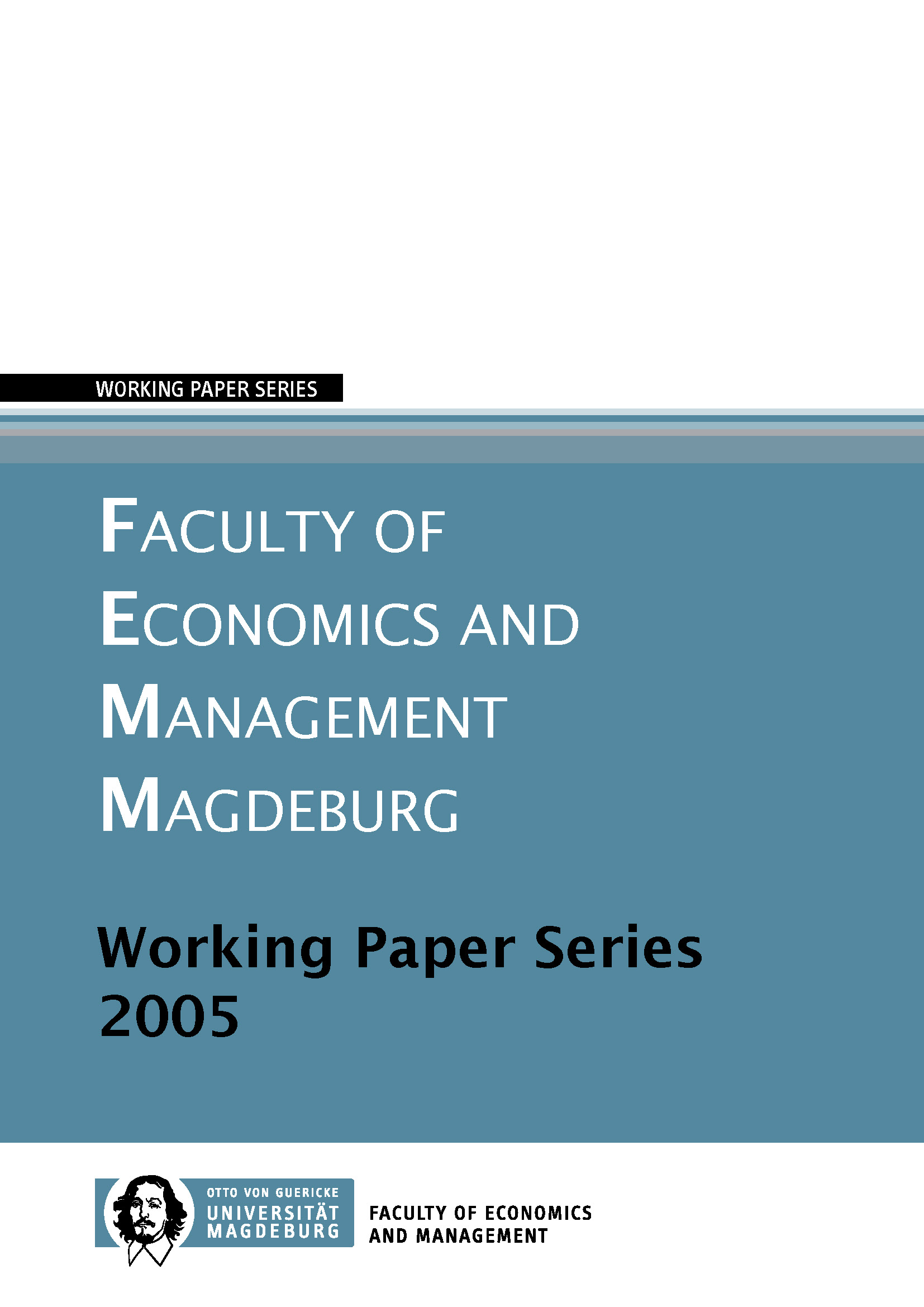Dynamic Behavior in Minimum Effort Coordination Games
Some Theory of Group Size and Inter-Group Competition as Coordination Devices
Keywords:
Minimum Effort Coordination, Group Competition, Stochastic Stability, Dynamic GamesAbstract
This paper presents a model of individual behavior in minimum effort coordination games, focusing primarily on the effects of the number of players and the introduction of intergroup competition. It is shown that independent of the number of players and the number of competing groups, the most inefficient equilibrium is always the stochastically stable one. Yet, it turns out that the `security' of more efficient equilibria increases with a decrease of the number of players and with an increase of the number of competing groups.


